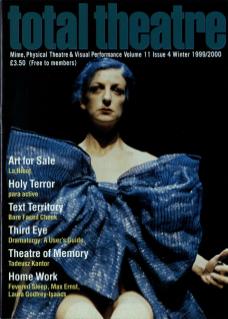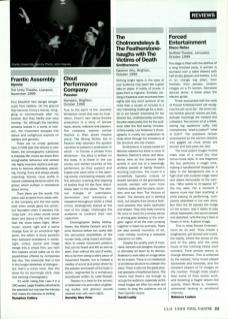The stage is filled with the detritus of a long finished party. A woman is slumped over a table littered with half empty glasses and bottles. A DJ in an orange wig plays, then rewinds, then pauses, random images on a TV screen. Someone dances alone. A bloke plays the electric guitar.
Those acquainted with the work of Forced Entertainment will recognise the set-up. So far the show covers familiar ground: stories are told, delicate meanings are created and collapsed. Two women sit at a table, asking big questions softly into microphones: ‘what is justice?', ‘what is truth?'. The questions remain unanswered as the women dissolve into giggles as more drinks are poured and bad jokes are told.
The most potent images involve video clips of a small boy, shot home-movie style. In one fragment the boy performs a magic trick, making a handkerchief disappear. A baby in the background sits in a high-chair with a plastic magic wand and stares bemusedly at the camera. ‘Who wants to re-appear it?’ the boy asks. For a moment it seems more real than anything: a child playing at performing, completely absorbed in his own story. But then the DJ pauses the image on the screen, and it starts to play slowly backwards, the sound warped and distorted, until the boy's face is frozen in time. A ghost image.
This is what Forced Entertainment do so well. They create a heightened, yet blurred and unstable reality, where the sense of the end of the party and the early hours of the morning infuse each moment. Time almost seems to change direction. This is enforced by the warped, tinny music played backwards and forwards, and the constant stream of TV images on the monitor. Though more playful than some of their earlier work, and fostering a fragile dream-like quality, Disco Relax is, however, somewhat lacking in emotional intensity.

